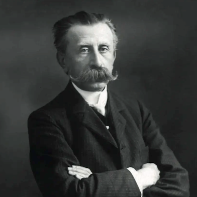Leaderboard
Popular Content
Showing content with the highest reputation on 01/26/2024 in all areas
-
Wow I can't believe I haven't replied to this topic yet! This is a good and important question as I believe that variation technique is at the core of composing in general and especially helps composers to learn to balance thematic unity and variety. When I started writing variations pieces I was very excited about being able to write longer compositions since up till then I struggled with writing anything over a minute long. But in a variation piece one idea leads to another and the music seems to write itself. I started with writing my variations in a chaconne/passacaglia style where you base the whole piece on a repeating bass line/harmonic progression and with each repetition of the 8 (or 16) bar pattern I would change small things about the theme. After many iterations those changes would add up and yield a very different sounding result. That's a style of writing variations where they play continuously without pause and it's hard to change the texture. But I soon also explored a way of writing variations where each variation could stand on its own almost as its own separate piece (like Elgar's Enigma Variations). One of my favorite variation techniques is to split the original theme into its constituent fragments and rearrange them into a new and yet somewhat familiar sounding melody. Of course, reversing the order of the notes or flipping the pitches upsidedown are the common techniques of retrograde and inversion respectively. But I think they are overrated as they don't really yield melodies that sound like they're still somehow related to the original theme imo. I also like adding notes in between the notes of the original theme. Repeating certain notes in the theme shouldn't be underestimated as an effective tool in the melody construction toolbox as well. I could probably talk much more about this topic but I'll leave it here for now.2 points
-
This piece is my attempt at making a thrilling battle score! I tried to keep momentum going as the battle mounts, and took the feedback I've been given here to keep some recurring references to motifs throughout, but with some variations! Overall I'm very happy with the piece from my perspective. It's not perfect. But I'm really happy with how strong a mental image the piece paints for me! In this case, a large scale battle. Hence the name, "The War Against the Machines". As for the VSTs I used, there's a combination of BBCSO Discover, Amadeus Symphonic (mostly for percussion), LABS, Intimate Strings, and Epic Choirs. As always, put together in FL Studio. Hope you enjoy the listen and I am looking forward to hearing your feedback!1 point
-
Cheers, @PeterthePapercomPoser, This was some great insight! I especially found your point about repeating various notes in the theme interesting. Quinn1 point
-
1 point
-
Yo Peter, That's an interesting topic I have forgotten to reply LoL! (please ignore all those tenses LoL. We don't have any tenses in Chinese since it's an analytic language haha) When I begin to compose I use solely sketchbooks, as I write everything on it. I am however not as crazy as you the PaperthePetercomPoser who writes your own staff!!!!! The reason for this is that I don't even have a notation program for it then. Only when I have to submit my ( ) and a bullshit chamber piece (which I fantasitically think would be suitable as an introduction to my trash String Quartet no.1) to the education bureau for my portfolio of the public music exam that I start to use Sibelius 6 for the first time. Composing on sketchbooks is still the main means for me, and I will use the time when I type my score to Sibelius to modify details. However my scoring is so bad that time and I miss so many details. Only when I started to write my Clarinet Quintet in C minor around 2016 I started to use Sibelius comprehensively since that work requires 5 staff for each line and it will cost much paper LoL. And up to now I mainly use Sibelius and sketchbooks becomes a means to catch my sudden inspiration or working out of ideas, before the real composing sessions. I still have a sketchbook around me to catch every inspiration possible, whether it happens in my workplace or in traffic. I don't use paper now is only becoz it's too time consuming to use my pen instead of computer program! For me I am different, I need those sound to tell me whether what I write is right or not, even if the sound is so crappy just like the Sibelius Ultimate on iPad. Like that six voice fugue I never imagine the real sound of it by hearing that crappy rendition haha, but I need that to help me determine what should be written and what shouldn't. Maybe for me I always don't like mere freedom, since that will be a false freedom which in terms limit my composition. I love to set limits to myself and limit my freedom and hence make it more productive! Henry1 point
-
This sounds awesome!! Super epic! I recently made my own epic battle song, though yours feels more like a triumphant moment. The pace. The action. Some hints of Danny Elfman sounds in there? I think you accomplished your goal well and I love this piece! Would be interested in hearing more of your work!1 point
-
In your fugal there are four subject entries, the first one in A minor and the last three in E minor. Usually the third one will also be in A minor since it’s the tonic at that time. It really depends how long you want the fugato to be, and you can definitely include entries in different keys if you want to. Adding episodes between entries will be great too! Will take a look into that late! Henry1 point
-
I find this topic fascinating. For me, the paradigm is romanticism. It is true that previously there was a lot of "love" music, but in baroque and classicism the mechanisms were different, although many would evolve to romanticism. For example, I think it expresses that idea: That there is a stable accompaniment pattern (arpeggios). That the melody is clear, at least in a first exposure. And that the intervals with respect to the left hand are consonant. Ascending melody (longing) and descending melody (relaxation). Polyrhythmic contrast, usually 2 against 3 or 4 against 3, see measure 6. Syncopasions in melody (measures 10, 11...) over the constant rhythm. Some plagal cadences, even using IV minor (measures 14 to 16). Subtle harmonic changes, e.g. beginning of the exposition with Gm instead of Bb in measure 17. Counter melodies in "echo", measures 17, 18... Union of voices and dissociation, measure 19. Modulations to unrelated keys as in measure 25 to G#m. Progressive complication as in these measures 25 onwards. Subtle harmonic changes, use of diminished and semi-diminished, progressions by thirds (see final). Final resolution towards the calm. A different matter is what someone (me in this case) wants to express. Anyway, without going too deeply into intimacy..., there are an infinite number of possibilities to express in "love". But I can say that, these days I am invaded by a set of feelings not only towards someone, but what this is provoking in me in general. For example, having been accustomed to a chosen life of solitude that now I "almost" can't stand. It is complicated to express anything in music and I think that what you can do is to leave in the notes certain emotions or diffuse or general sensations. Anyway, I wanted to contribute this, also because no one has encouraged.... Greetings.1 point
-
Hey @Layne, I love the F minor used here to depict the winter just like Vivaldi’s Winter! The key is so chilling. The augmented chord of E, Ab and C is great. The music is indeed simple, but really achieve great effects with the opening hooking chords! Maybe it’s a modern 4 beat Chaconne! Thx for sharing! Henry1 point
-
I have just thought of another one: I freakingly love Orson Welles’s adaptation of Kafka’s The Trial and I especially love the lead Anthony Perkins since he is also the lead in Hitchcock’s Psycho. For me the film is not quite faithful to what Kafka wanted to say, but I love both interpretations of the same themes. The music in the film is Albinoni’s Adagio and oh my god, it’s so fxxxingly beautiful to show the nihilistic isolation and solitude of a man under the absurd bureaucracy and modern world now!1 point
-
As I have seen from the score the first string chord is comprised of Gb, Bb and Db with Gb as the bass, so it will be a Gb major chord in its root position! The next chord comprises of B (which should be Cb), Db and F which is a V4/2 chord and not a Db major chord either!1 point
-
Hauntingly beautiful work! I found myself engaged throughout and the ending is perfect. Thanks for sharing!1 point



.thumb.png.8b5b433a341551e913a34392660bc95b.png)
